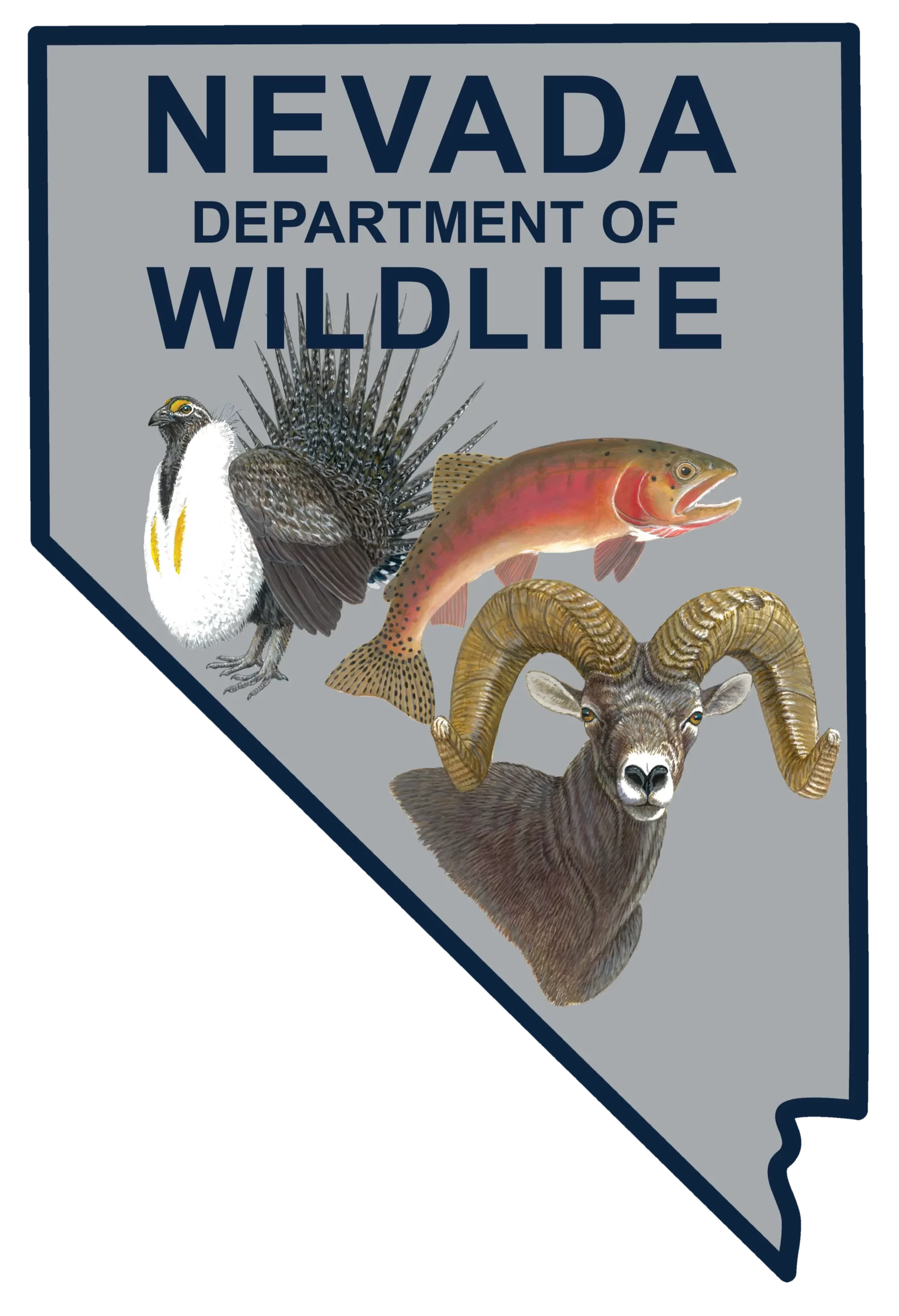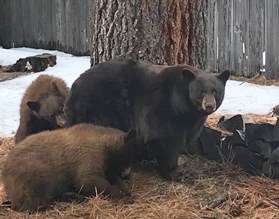Reno, NV– Shortly before 3 a.m. I’m awakened by the sound of my “bear phone” ringing, the volume always kept on high so I can respond to wildlife emergencies as quickly as possible. Still half asleep, I listen to the sheriff’s office dispatcher telling me a bear had been hit by a car and her cubs are running in and out of the road, presumably to check on their now deceased mother. I hurry to put on my uniform and load up my Karelian Bear Dog, Badger. As we make the drive to southwest Reno, I consider what I will do if the cubs are still there when I arrive. Born around February 1st, the cubs are now about 9 months old and at this age their options aren’t as clear. They are just barely old enough to fend for themselves and forage on their own, but I could also attempt to capture them and send them to a wildlife rehabilitation center to be released back into the wild next spring. Under normal circumstances, their mother would have been there this winter to teach them how to select and build a den before they are on their own next spring. Unfortunately, this is not something that a wildlife rehabilitation center can teach them. While I consider my options, an image of a mother and her cubs all huddled in a den they built together flashes in my mind. I am saddened for this mother who has diligently cared for her babies and taught them everything they needed to know up until this point and will now not be able to teach them their final critical lessons.
I arrive to a sight that is far too common, a resident had brought out their non-wildlife resistant trash cans to the roadside the night before pick-up is scheduled. An act that may have seemed harmless at the time has now played a major role in ending one bear’s life and significantly altering the lives of her cubs. I wonder if the residents knew that bears live in this neighborhood too, or if they had previously been warned by code enforcement to keep their trash secure. I wonder if they knew they could help prevent this by keeping their trash in a garage until the morning of pick-up or that they could request wildlife- resistant trash cans from their disposal company. Every day I have conversations with residents about securing their trash and preventing bears from obtaining food rewards from humans in the form of trash or other attractants. It is something I will continue to do every single day, holding out hope that one day it will catch on. One day we will educate enough people and the majority will listen and care and understand that their seemingly harmless acts can have far-reaching consequences.
This article was written by NDOW Urban Wildlife Biologist Rebecca Carniello in an effort to show the importance of securing attractants and the impact it can have if residents fail to do so. Biologists were never able to locate the cubs mentioned above. Prevent this from happening in the future by learning about how you can live responsibly in bear country here.

